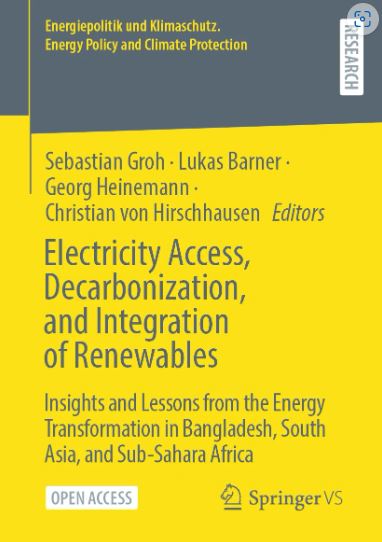
Article publication Are Mini-Grid Projects in Tanzania Financially Sustainable? In: Electricity Access, Decarbonization, and Integration of Renewables by Elias Zigah, Mamadou Barry & Anna Creti in Springer VS review.
pp 233–261
https://doi.org/10.1007/978-3-658-38215-5_10
Part of the Energiepolitik und Klimaschutz. Energy Policy and Climate Protection book series (EPKS)
While it is commonly acknowledged that mini-grids are the new pathway to bridging the high electricity access deficit in Sub-Saharan Africa (SSA), comparably few studies have assessed how existing regulations and tariff policies in SSA affect their potentials to attract the number of private investments required to scale-up deployments. Private investors’ participation is particularly crucial to meet the annual electrification investment needs of $120 billons in SSA. We study the regulatory framework, the tariff structure, and the subsidy schemes for mini-grids in Tanzania. Additionally, using an optimization technique, we assess the profitability of a mini-grid electrification project in Tanzania from a private investment perspective. We find that the approved standardized small power producers’ tariffs and subsidy scheme in Tanzania still do not allow mini-grid for rural electrification projects to be profitable. A further study is required to identify successful business models and strategies to improve mini-grids profitability.
